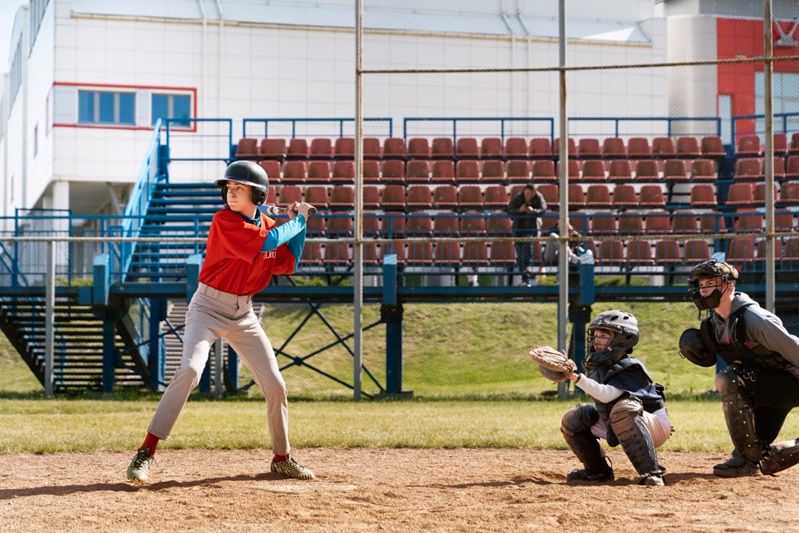Baseball is more than just a sport; it’s a powerful tool for personal and professional growth. Players step onto the field with a shared goal, and every pitch, hit, and catch strengthens their bond as a team. From young athletes to seasoned professionals, the lessons learned extend beyond the game. Baseball teaches collaboration, trust, and problem-solving, all essential for teamwork and leadership. The dynamics of the game highlight the importance of communication, accountability, and resilience. These skills not only shape players but also inspire them to lead both on and off the field.
Fostering Strong Communication
Clear communication is the backbone of baseball. Players constantly share signals, relay strategies, and give feedback during plays. Miscommunication can lead to errors, making it essential for teammates to stay connected.
- Coaches teach players how to express themselves concisely, ensuring everyone understands the plan.
- Players learn to listen actively, respecting diverse perspectives.
- Non-verbal cues, such as hand gestures or eye contact, are vital for seamless coordination.
These habits carry over into everyday life, helping individuals excel in teamwork and leadership roles.
Baseball Encouraging Accountability
Baseball holds players accountable for their actions. Every strike, hit, or miss has an impact on the game. This sense of responsibility builds character and fosters trust within the team.
- Players must own up to their mistakes and work toward improvement.
- The team environment emphasizes collective success over individual achievements.
- Leaders emerge as they motivate others to stay focused and give their best.
This culture of accountability strengthens bonds and creates a supportive atmosphere.

Promoting Collaborative Problem-Solving
Each game presents new challenges, requiring quick thinking and teamwork. From strategizing how to score runs to adapting defensive plays, baseball sharpens decision-making skills.
- Teams analyze opponents’ tactics and adjust their strategies.
- Collaboration during high-pressure moments teaches players to remain calm and resourceful.
- Learning from losses instills resilience and adaptability.
These experiences prepare players for leadership roles, where problem-solving is a key asset.
Baseball Developing Trust and Camaraderie
Trust is the glue that holds a team together. Baseball nurtures trust through shared experiences, challenges, and victories. Players depend on each other to perform their roles effectively.
- Teammates build trust through consistent effort and reliability.
- Celebrating victories and supporting each other during setbacks strengthens relationships.
- A sense of camaraderie creates a positive and motivating environment.
This trust fosters a culture of mutual respect, which is critical for leadership and teamwork.
Baseball Building Confidence and Resilience
Baseball is a game of highs and lows. Success often follows repeated failures, teaching players to persevere. This resilience builds confidence and prepares individuals to lead with determination.
- Facing setbacks helps players develop mental toughness.
- Celebrating small wins boosts morale and encourages progress.
- Leaders inspire their teams by demonstrating a never-give-up attitude.
Confidence and resilience are crucial qualities for effective teamwork and leadership.
Instilling Leadership Qualities
Baseball provides numerous opportunities for players to step into leadership roles. Captains, pitchers, and even informal leaders guide their teams toward success.
- Leaders ensure every teammate feels valued and motivated.
- Decision-making responsibilities teach accountability and fairness.
- Setting an example through hard work inspires others to follow suit.
These experiences shape players into confident leaders who excel in both sports and life.

Frequently Asked Questions About Baseball and Teamwork
- How does baseball improve teamwork?
Baseball encourages collaboration through shared goals, clear communication, and mutual support. Players work together to execute strategies, fostering trust and unity.
- What leadership skills can baseball teach?
Baseball develops decision-making, accountability, confidence, and the ability to inspire others. It prepares players for leadership roles by teaching them to handle pressure and motivate teams.
- Can non-players benefit from baseball lessons?
Yes, the principles of teamwork, communication, and resilience are applicable in workplaces, schools, and personal relationships.
- Why is accountability important in baseball?
Accountability ensures players take responsibility for their actions, learn from mistakes, and contribute to the team’s success.
- How does trust play a role in baseball?
Trust allows players to rely on one another, creating a supportive environment that enhances performance and strengthens relationships.
Learn to Lead Through the Spirit of Team Sports
Baseball is a rich source of life lessons, teaching teamwork, leadership, and personal growth. Every game provides opportunities to communicate, collaborate, and build resilience. Players carry these skills beyond the field, excelling in their careers and personal lives. The values of accountability, trust, and camaraderie instilled by baseball make it more than a sport—it’s a foundation for strong leaders and cohesive teams. As the game continues to inspire, its impact on building character and connections remains timeless.

